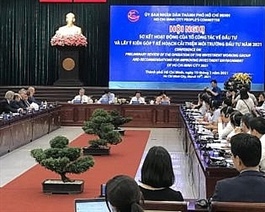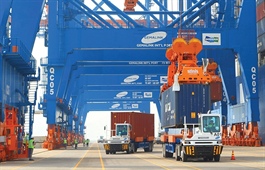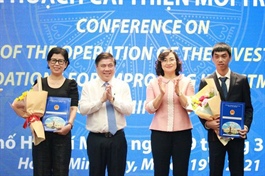Policies to support firms should be practical
Policies to support firms should be practical
Policies to support firms to overcome the negative impacts of the COVID-19 pandemic should be more practical to ensure companies really benefit. 
According to the Viet Nam Chamber of Commerce and Industry (VCCI), from the outbreak of the virus to the end of last year, about 95 documents were issued to support enterprises and residents with four major packages including VND250 trillion in credit support, VND180 trillion in tax deferrals, VND16 trillion in preferential loans with zero rate and VND62 trillion in social welfare.
However, the efficiency of these policies was not as high as expected due to complicated procedures and requirements which deterred firms from applying for the support policies, some business associations said.
Agreeing it was necessary to launch a so-called second economic stimulus package, Pham Xuan Hoe, former Deputy Director of the Banking Strategy Institute, said that policy-makers must renovate their thinking in raising policies to ensure the support really benefits firms in the new normal.
Policies should aim to simplify criteria and requirements as well as ensuring fairness in access among those who were subjects to the assistance.
Policy-makers needed to understand what were the problems enterprises were encountering so that could raise practical solutions, Hoe said.
Interest rates should also be strongly reduced to support enterprises, Hoe said.
Vinh Phuc Province Enterprise Association proposed further cuts in taxes, specifically value-added tax from 10 per cent to eight per cent over the next three to five years and corporate income tax from 20 per cent to 13-15 per cent.
According to Nguyen Xuan Tot, President of Thai Nguyen Province Association of Small and Medium-Sized Enterprises, the tax deferral policy did not help much as the majority of enterprises suffered from declines in revenue and even losses.
Vu Thi An, Director of C&A Tax Consultancy Company, said the tax support policies remained modest, mainly tax deferral, adding that it was understandable in the context of limited national financial capacity.
An also said that enterprises should not expect too much from tax reduction and exemption policies. The better way to support enterprises would be reducing the number of time-consuming inspections, An said, adding that they should only be carried out when there were signs of violations.
VCCI’s survey found that 87.2 per cent of enterprises were suffering from negative impacts of the pandemic.



























